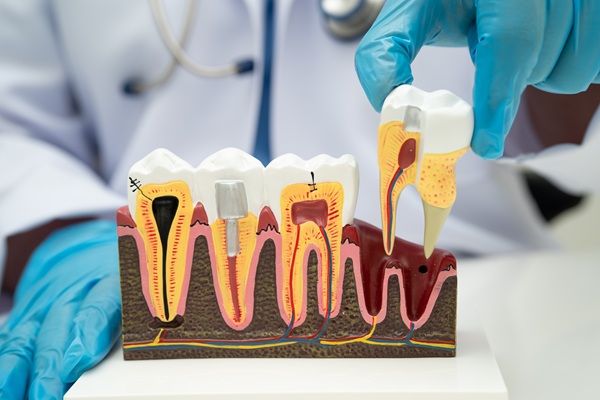Signs of a Failed Root Canal

Root canal therapy is an effective way to restore infected teeth. However, like any procedure, there are cases where complications arise and the treated tooth may not heal as expected. It is important to know the signs of root canal failure so that you can get the tooth treated again as soon as possible. Addressing a failed root canal promptly can fix any issues and relieve symptoms, as well as protect the health of the tooth.
Why a root canal may fail
Several factors can contribute to the failure of a root canal procedure. One of the most common causes is the presence of complex canals within the tooth. Some teeth, like molars, may have multiple tiny canals that are difficult to clean thoroughly. If bacteria stay trapped inside, infection can persist and compromise the success of the root canal.
Another common reason for root canal failure is that the tooth was not sealed completely. Even with precise treatment, microscopic pathways or cracks may allow new contamination over time. In addition, new dental trauma or tooth decay can also lead to reinfection. Each of these issues demonstrates the importance of comprehensive evaluation and careful planning by a general or emergency dentist. The condition of the tooth before a root canal could also cause the procedure to fail. This includes issues such as the infection being too severe or the tooth being too weak.
Signs of a failed root canal
A failed root canal does not always present obvious symptoms immediately. Discomfort may reappear months or even years after treatment. Recognizing the warning signs ensures that patients can access quick care before further complications develop.
Common signs of root canal failure include:
- Persistent or recurring pain in the treated tooth
- Swelling of the gums or face near the treated area
- Discoloration of the affected tooth
- Formation of small bumps or abscesses on the gums
- The treated tooth becomes loose or tender
Although these symptoms vary in intensity, they should not be ignored. A general or emergency dentist can perform a thorough evaluation to confirm whether retreatment or another procedure is necessary. If retreatment cannot save the tooth, extraction followed by a dental implant or bridge may be the most appropriate solution.
Preventing root canal failure
While there is no guaranteed way to prevent root canal failure, patients can lower their risk. To start, they can choose a general or emergency dentist experienced in root canal therapy. The more often the dentist performs root canals, the more skilled they become at doing an excellent, thorough job.
It is also a good idea to follow the dentist’s advice after the root canal, such as if they recommend reinforcing the tooth with a dental crown. When needed, this step reduces the chances of future failure. Otherwise, the treated tooth may remain vulnerable, increasing the chances of future failure.
For the long term, good oral hygiene practices, like consistent brushing, flossing, and professional cleanings, further protect the success of a root canal. Try to avoid teeth grinding, chewing on ice, and other habits that can wear down or chip teeth or crowns.
Supporting the success of a root canal
There is a potential for root canal failure, but the chances of it happening are low when performed by a trained general or emergency dentist. Our Spartanburg team can also provide personalized advice on further reducing the risk of root canal failure. For more information, contact North Grove Dental today.
Request an appointment here: https://www.northgrovedental.com or call North Grove Dental at (864) 504-6224 for an appointment in our Spartanburg office.
Check out what others are saying about our dental services on Yelp: Root Canal in Spartanburg, SC.
Related Posts
You should see an emergency dentist for your abscessed tooth. This condition is an infection. Severe pain and swelling are its main symptoms. Seeking emergency dental care can help right away. An abscessed tooth can become a jaw infection if it does not receive immediate treatment. If you want to find out why you should…
An emergency dentist may be necessary. The tissue that makes up your gums does not grow back, so it can be scary in the unlikely event that you get lacerated on your gums. To clarify, a cut that comes from everyday activities such as flossing, brushing your teeth too vigorously, or biting down wrongly on…
A restorative dentist does more than repair damaged teeth. These general, cosmetic, and family dentists play a key role in keeping the whole mouth healthy for the long term. They achieve this by keeping track of how teeth, gums, the bite, and the jaw joints work together, rather than focusing only on single problems. With…
Losing a tooth can be disconcerting. Thankfully, there are multiple dental restoration options to replace the missing tooth and restore dental functions. Read on to learn about available options. The choice ultimately boils down to the patient's oral condition and preferences. A dentist will recommend the proper treatment following a dental evaluation.The following are common…
